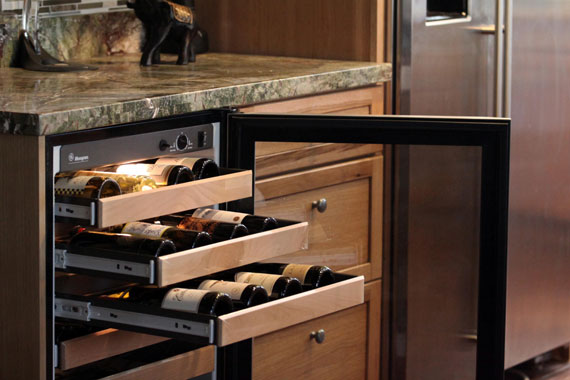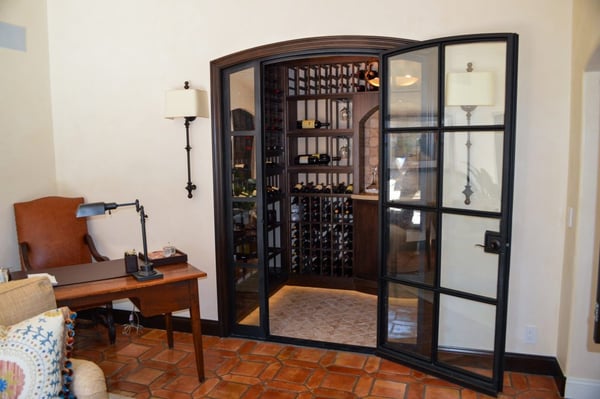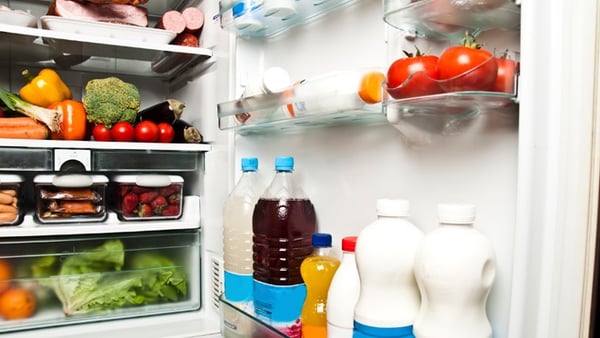Is it time to bring your kitchen to the next level with a wine fridge? If you're a wine enthusiast, or simply enjoy a glass of vino once in a while, it might be! In this blog post, we'll help you decide whether or not you really need a wine fridge in your home.
Before you invest in a wine cooler, let's dive into your top considerations. After all, we're sure you're asking yourself, "do I really need a wine fridge?"

What’s the point of a wine fridge?
Wine fridges, also called wine coolers or wine caves, are used to chill your wine to the perfect serving temperature. Sure, a wine fridge is smaller and less expensive than an entire wine cellar. But you can find them in sizes ranging from a mini-fridge to a regular sized fridge.
Generally, a wine fridge would hold the wines you plan to drink during a short time frame. Depending on its size, though, you can sometimes hold as much as a year's supply in a wine fridge. According to Into Wine, a wine fridge, like regular fridges for food, keep the humidity low—usually below 50 percent.
“This lower humidity can dry out corks over time and shrink them, allowing oxygen to enter the bottle and reduce the quality of the wine,” says Into Wine. “You can monitor temperature and humidity in a wine fridge by using a special gauge inside the fridge. You can set the temperature between 45 degrees and 65 degrees, depending on what wines you are chilling.”
A wine fridge is helpful because it can maintain the proper temperature for your wine. Your regular fridge likely gets opened and closed quite often, which can cause its temperature to fluctuate. Constant temperature fluctuations are harmful to bottles of wine. Additionally, wine fridges and regular kitchen refrigerators essentially have two different functions. An everyday fridge is meant to keep perishables cold and dry. This temperature is too harsh for the fragile composition of wine.
Benefits of having a wine fridge

1. They’re less expensive than a wine cellar.
According to CostOwl.com, a wine cooling unit needed to keep the cellar temperature and humidity at ideal levels for your wine can cost between $1,000 to $10,000 or even more.
On the other hand, a wine cooler or wine fridge that holds about 20 to 120 bottles of wine might cost between $200 to $2,000, CostOwl.co reports.
2. Your wine stays fresher, longer.
“Temperature, humidity, and vibration are the key distinguishing factors between conventional refrigerators and wine refrigerators,” says WineEnthusiast.com. Wines can be sensitive to temperature changes, so if you live in a house that gets very cold or super hot, your wine is even more at risk of losing its flavour than usual.
Regular fridges are designed to drop temperature rapidly and drive out humidity. Wine cellars (and wine fridges) treat their contents differently. A wine fridge lowers the temperature of its contents at a slower rate, and maintains a level of humidity that is ideal for wine.

3. Humidity in your regular fridge can damage your wine.
Humidity, like temperature, can be detrimental to your wines. Regular kitchen refrigerators are designed to remove the humidity from the air in your fridge, Blog Your Wine explains.
“While wine fridges are designed to maintain the humidity inside the unit…this is important as the humidity will help keep your corks wet and hence slow down the aging process,” Curtis Dahl, co-owner of Joseph & Curtis, told Blog Your Wine. “The other issue is storage (home fridge has no wine racks) whereas a wine fridge will have shelf’s specifically built to hold wine bottles.”
4. They’re environmentally friendly.
If you’re concerned with having an eco-friendly home, a wine fridge or wine cooler may be a good investment for you. According to New Air, wine coolers use a thermoelectric medium of cooling, which is a common alternative to compressor-based wine coolers. This means, the owner of a wine cooler can be saving energy around the home and in turn, preserving the environment.
Additionally, New Air states that there are no dangerous emissions or the use of dangerous chemicals in the cooling process. “Instead, a simple process of using a metal rod to exchange heat between the internal chamber and outside environment occurs,” New Air explains. “Because of this, the wine cooler can be considered the more eco-friendly option than any other alternative out on the market currently.”

5. They keep bad or unwanted smells out.
Odours in your everyday fridge can adversely affect wine. The lack of humidity in a regular fridge can cause your wine to take on surrounding odours (and tastes). This happens when the cork in your wine bottle shrinks and becomes porous. That doesn't sound very appetizing to us!
6. It’s not just for wine!
A wine cooler can be used to store more than just wine. Your wine fridge can also be a beneficial spot for nice oils and vinegars. You can also use a wine cooler to store beverages that don't fit in your regular kitchen fridge. This would be quite useful if you host parties on a regular basis!
Before purchasing a wine fridge or wine cooler for your home, be sure to take critical measurements to ensure it will fit in the space you have available. For more tips, tricks, and inspiration, head to your nearby Kitchen & Bath Classics showroom today!



